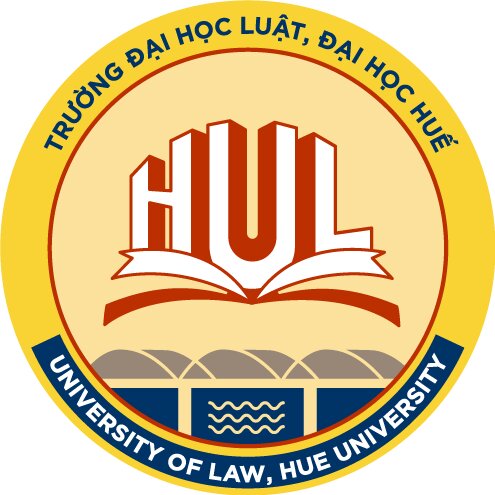
Best Guardianship Lawyers in Ho Chi Minh City
Share your needs with us, get contacted by law firms.
Free. Takes 2 min.
List of the best lawyers in Ho Chi Minh City, Vietnam

About Guardianship Law in Ho Chi Minh City, Vietnam:
Guardianship in Ho Chi Minh City, Vietnam refers to the legal process in which a person is appointed to make decisions for another individual who is unable to care for themselves due to age, mental incapacity, or disability. The guardian is responsible for making decisions regarding the individual's personal affairs, health care, and financial matters. This process ensures the well-being and protection of vulnerable individuals.
Why You May Need a Lawyer:
You may need a lawyer to help you navigate the complex legal procedures involved in establishing and managing a guardianship in Ho Chi Minh City. A lawyer can provide valuable advice and guidance on the legal requirements, rights, and responsibilities of guardianship. They can also represent you in court proceedings and ensure that the best interests of the individual under guardianship are protected.
Local Laws Overview:
In Ho Chi Minh City, Vietnam, guardianship is governed by the Civil Code and other relevant laws and regulations. The court has the authority to appoint a guardian for an incapacitated individual and oversee the guardian's actions to ensure they act in the best interests of the individual. The court may also terminate or modify a guardianship arrangement if it is deemed necessary.
Frequently Asked Questions:
1. What is the difference between guardianship and custody in Vietnam?
In Vietnam, guardianship refers to the legal responsibility of caring for an individual who is unable to care for themselves, while custody typically refers to the care and upbringing of a child. Guardianship is often established for adults who are incapacitated, while custody is typically established for minors.
2. How can I apply for guardianship in Ho Chi Minh City?
To apply for guardianship in Ho Chi Minh City, you will need to submit a written application to the court, along with supporting documents that demonstrate the need for a guardian and your suitability for the role. The court will review the application and make a decision based on the best interests of the individual in need of guardianship.
3. Can I choose my own guardian in Vietnam?
In Vietnam, the court will typically appoint a guardian for an incapacitated individual based on their best interests. However, you may express your preference for a guardian, and the court will take this into consideration when making a decision.
4. What are the responsibilities of a guardian in Ho Chi Minh City?
A guardian in Ho Chi Minh City is responsible for making decisions regarding the personal affairs, health care, and financial matters of the individual under guardianship. The guardian must act in the best interests of the individual and seek court approval for certain major decisions.
5. How long does a guardianship last in Vietnam?
A guardianship in Vietnam typically lasts until the incapacitated individual is deemed capable of managing their own affairs or passes away. The court may review the guardianship arrangement periodically to determine if it is still necessary.
6. Can a guardianship be terminated or modified in Vietnam?
Yes, a guardianship in Vietnam can be terminated or modified by the court if it is deemed necessary. The court may consider factors such as the individual's capacity to care for themselves, changes in circumstances, or the guardian's failure to fulfill their responsibilities.
7. What happens if there is a dispute over guardianship in Vietnam?
If there is a dispute over guardianship in Vietnam, the court will intervene to resolve the issue. The court may appoint a temporary guardian while the dispute is being resolved and ultimately make a decision based on the best interests of the individual under guardianship.
8. Can I appeal a court's decision regarding guardianship in Vietnam?
Yes, you have the right to appeal a court's decision regarding guardianship in Vietnam. You must follow the appropriate legal procedures for filing an appeal and present your case to a higher court for review.
9. Are there any alternatives to guardianship in Vietnam?
Yes, there are alternatives to guardianship in Vietnam, such as supportive decision-making agreements, powers of attorney, and advance directives. These alternatives allow individuals to plan for their future decision-making needs without the need for a formal guardianship arrangement.
10. How can a lawyer help me with guardianship in Ho Chi Minh City?
A lawyer can provide valuable guidance and representation throughout the guardianship process in Ho Chi Minh City. They can help you understand your legal rights and obligations, prepare and file necessary paperwork, represent you in court proceedings, and ensure that the best interests of the individual under guardianship are protected.
Additional Resources:
If you need legal assistance with guardianship in Ho Chi Minh City, Vietnam, you may contact the People's Court or seek guidance from the Ministry of Justice. Additionally, legal aid organizations and law firms specializing in family law and guardianship can provide valuable support and advice.
Next Steps:
If you require legal assistance with guardianship in Ho Chi Minh City, Vietnam, it is advisable to consult with a lawyer who is experienced in family law and guardianship matters. The lawyer can assess your situation, explain the legal procedures involved, and help you navigate the complexities of establishing and managing a guardianship arrangement. Remember to gather all relevant documents and information before meeting with your lawyer to ensure a smooth and efficient process.
Lawzana helps you find the best lawyers and law firms in Ho Chi Minh City through a curated and pre-screened list of qualified legal professionals. Our platform offers rankings and detailed profiles of attorneys and law firms, allowing you to compare based on practice areas, including Guardianship, experience, and client feedback.
Each profile includes a description of the firm's areas of practice, client reviews, team members and partners, year of establishment, spoken languages, office locations, contact information, social media presence, and any published articles or resources. Most firms on our platform speak English and are experienced in both local and international legal matters.
Get a quote from top-rated law firms in Ho Chi Minh City, Vietnam — quickly, securely, and without unnecessary hassle.
Disclaimer:
The information provided on this page is for general informational purposes only and does not constitute legal advice. While we strive to ensure the accuracy and relevance of the content, legal information may change over time, and interpretations of the law can vary. You should always consult with a qualified legal professional for advice specific to your situation.
We disclaim all liability for actions taken or not taken based on the content of this page. If you believe any information is incorrect or outdated, please contact us, and we will review and update it where appropriate.













